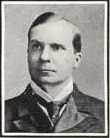Candidates
Liberals

In 1912, Raymond Asquith, son of the Prime Minister, H. H. Asquith, had been adopted as Liberal candidate in succession to Roe. [2] Asquith had spent much of the war in Europe, but remained as prospective Liberal candidate right up to the point when he was killed in action in September 1916. [3]

Derby Liberals favoured Joseph Davies for their candidate but Liberal Party headquarters in London was still under the control of H H Asquith, even though he had ceased to be prime minister and they issued an edict that, because of his close association with Lloyd George, Davies was not to be selected under any circumstances. Asquith’s personal secretary went to Derby to enforce this ruling. Although a majority of Derby’s Liberal delegates wanted Davies, they chose an Asquithian Liberal, Sir William Job Collins instead. [4] Collins was formerly the MP for St Pancras West but before his political career Collins had been a distinguished surgeon. [5]
Conservatives
There was a wartime electoral truce in operation and the Conservatives were partners in the wartime Coalition. Nevertheless their former candidate, Arthur Edward Beck, had been nursing the constituency and had fought the two general elections of 1910. He said he was content to honour the electoral truce as long as the chosen Liberal was not a purely party political nomination and if it was proposed to put the new man into government office. If the government would pledge, as they had apparently done at Sheffield Hallam recently, that the minister would retire at the end of the war, Beck stated that he would be willing to stand aside. [6] It does not appear that the exact assurances Beck was demanding were made officially. Collins was never made a minister but he did state publicly in the run-up to the by-election that his sole policy was to give unflinching support to the government in the successful prosecution of the war and that he was willing to defer any matters of party political conflict until after the war. The Unionists decided not to stand a candidate. [7]
